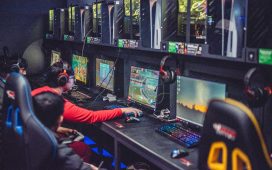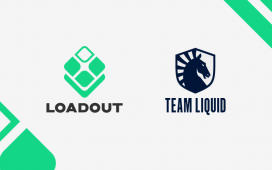In the following opinion piece, Foley & Lardner attorney Jake Hicks talks about the effect the COVID-19 pandemic has had on the Call of Duty League, and if the adjustments that had to be made will have a long-term implications on it going in 2021.
COVID-19 has had an undeniably stark impact on traditional professional sports, but it has also left its mark within the online world of esports. Forced by the coronavirus to an entirely online format, the Call of Duty League (CDL) finished its inaugural competitive season in the fall of 2020, with the Dallas Empire earning the league’s first title and taking home the lion’s share of the $4.6M USD prize pool.
While the CDL was able to complete its season, the entirely online format created some significant logistical and technical issues that impacted actual gameplay and threatened the integrity of the competition. Third parties were able to interrupt internet connections of players while tournament games were played. Johanna Faries, the CDL’s Commissioner, recently confirmed that the CDL will conduct its 2021 season for Black Ops Cold War online as it began its first weekend of competition on February 11, 2021. Therefore, the CDL will need to address these issues and perhaps consider potential legal strategies to respond to or deter interference with online play.
Before COVID-19, Call of Duty tournament organizers held championship competitions on a local area network (LAN) on a closed-loop system, not only to provide the best possible connection for competition, but also to mitigate cheating and other outside risks. However, with COVID-19 precluding live event gathering and forcing the tournament to move entirely online, those risks were enhanced and became reality in the first weekend of the competition. Third parties allegedly interrupted the internet connections of players on the London Royal Ravens and (former) Optic Gaming Los Angeles as they began the first weekend of tournament, which caused players to disconnect from the game in competition rounds.
The connection attacks appeared to be timed so that players exited games outside of CDL rules regarding a reset, leaving a team of five to finish the match with only four players. While there is always a risk of such interference in an online mode, these attacks may have been financially motivated as the CDL held a “March Madness” style bracket competition, in which the individual(s) that correctly completed a bracket of the tournament could win $100K.
The CDL’s inaugural 2020 championship took place over the course of two weekends. With the first weekend of the competition, these third-party interruptions forced the CDL to play the games on a delay and broadcast matches to the public after the matches were completed. Viewers, who believed they were watching live gameplay, discovered the delay after a CDL employee unwittingly updated the online scoreboard before broadcasting the matches to viewers. The following weekend, the CDL conducted the championship rounds without any known interruptions, but viewers were not afforded the experience of watching the final match in real-time (although the players withheld social media posts until the match aired).
Given the current trajectory of the coronavirus pandemic, the CDL may need to consider the prospects for its online 2021 season, and whether it will delay broadcasts of tournaments played online. Although the Call of Duty Black Ops: Cold War, this year’s game title, is being played on PC and purports to have a “pause” feature to preserve gameplay, there have been several instances where players’ games have crashed and the pause feature remained unused. The most recent example occurred on Day 4 of Stage 2 on March 21, 2021, in which “scan and repair” errors caused Faze Abezy’s game to crash and required the teams to replay their Control match. The CDL has yet to implement the use of any “pause” feature, and it is therefore that much more important for the CDL to have a plan for game interruptions and to deter third-party interference, if possible.
Since the end of the first season, CDL players and team owners have reportedly discussed a “bubble” option to host the larger tournaments on LAN, and the CDL’s Commissioner is hopeful that it may hold live events later in the season. But given the length of the CDL season, a significant portion of the 2021 season will take place online. With these COVID-related potentialities, the CDL will likely need to evaluate its options regarding third-party interference with tournament play and consider possible legal strategies to thwart attempts to interrupt the integrity of the competition.
As reflected in our 2020 Esports Survey, industry stakeholders perceive match-fixing and cheating, along with cybersecurity and malware attacks, as significant threats to the growth of esports. While the CDL presumably has conduct-related rules prohibiting participants from engaging in these activities, it is not clear what CDL can do or has done with respect to outside parties.
Does the CDL have any legal recourse against nefarious outside actors?
Activision Blizzard (“AB”), the owner of the CDL and the Call of Duty games, has reportedly sent cease and desist letters to third parties for selling cheating programs to Warzone players. AB has also reportedly sent investigators to the homes of individual developers of cheat programs in an effort to curb the practice. As owner of the game and its software, AB has significant legal muscle it can flex to protect its interests. For example, it has legal recourse against anyone who manipulates its code in the game’s software to harm its product – an activity that would qualify as a breach of AB’s end-user agreement, as well as tortious interference with AB’s end-user agreement with other users. But the third-party interference with internet connections is not the same as manipulating game code, and the perpetrator may not even own the game at all (and thus would not be subject to the terms of any end user agreement).
A meaningful legal strategy against these outside parties faces a number of obstacles. First, CDL officials must be able to identify individuals or entities attacking the connections of tournament players. Second, once a perpetrator is identified, the CDL must be able to assert a viable complaint in an appropriate forum that could provide a legal remedy.
In addition to violations of the Computer Fraud and Abuse Act and various state criminal codes regarding internet connection disruption, tortious interference could provide the conceptual framework for a private action and legal recourse. Tortious interference occurs when there is a valid contract, the interfering party has knowledge of the contract and acts with intent to cause one of the contracting parties to breach that contract, and there is an actual breach of the contract that results in damages for the non-breaching party. Perhaps the wrongful activity of these parties actionably undermines the contractual obligations among the CDL and its teams or players.
A closer examination of those contractual arrangements could reveal a potential legal theory that the CDL might use to seek redress and deter attempts to disrupt gameplay at future tournaments. For so many reasons, an end to this pandemic cannot come too soon. A return to a LAN format for the CDL would resolve the various concerns that have arisen from an entirely online format. Unfortunately, it looks like COVID-19 will still be altering life and the CDL in 2021. As a consequence, the CDL will likely need to sharpen its technological and legal tools to block outside parties from interfering with gameplay and preserve the integrity of its second tournament season.















